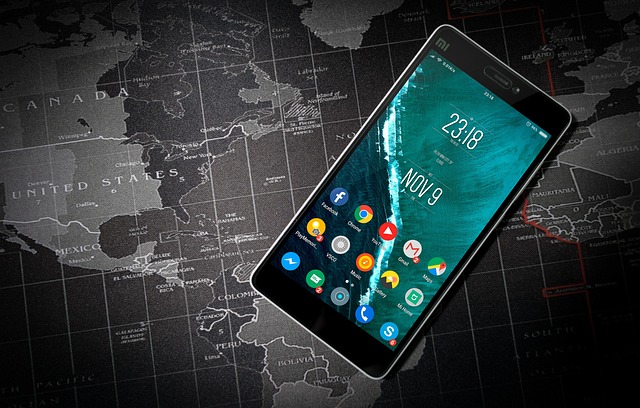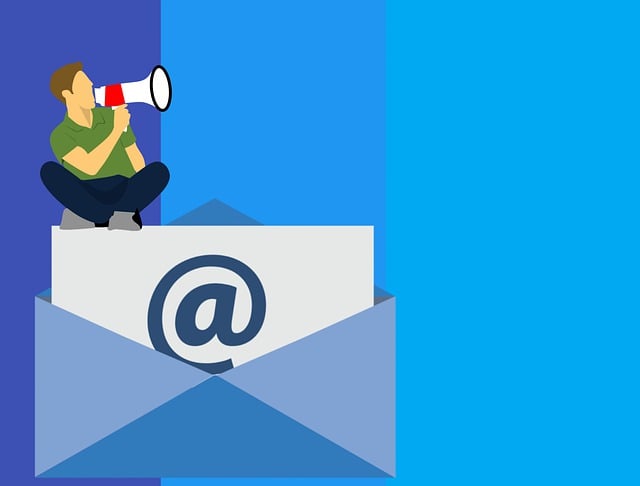Picture this: you’re on your phone, scrolling through your inbox, when suddenly a captivating email catches your eye. It’s from a mobile app you recently downloaded, offering a limited-time discount on your favorite products. Intrigued, you click on the email and make a purchase within minutes.
Now imagine receiving a text message instead, with a personalized offer that instantly grabs your attention. You quickly tap the link and complete the transaction without even leaving the conversation.
In the world of mobile apps, email marketing and SMS marketing are two powerful strategies competing for your attention. But which one is more effective?
In this article, we will delve into the differences between email marketing and SMS marketing, evaluate their effectiveness, and help you determine the best approach for your mobile app.
So, buckle up and get ready to discover the most impactful way to engage with your audience and drive app success.
Key Takeaways
- Email marketing allows for precise segmentation based on user demographics, interests, and behaviors.
- SMS marketing has a higher open rate, response rate, and click-through rate compared to email marketing.
- Integrating email and SMS marketing strategies can maximize reach and impact.
- Personalization techniques can be used in both email and SMS campaigns to increase relevance and customer engagement.
Understand the Differences Between Email Marketing and SMS Marketing
Let’s explore the contrasting worlds of email marketing and SMS marketing to understand the unique techniques and benefits each platform offers.
When it comes to targeting strategies, email marketing allows for precise segmentation based on user demographics, interests, and behaviors. This enables businesses to tailor their messages and increase the relevance to the audience, resulting in higher engagement rates.
On the other hand, SMS marketing allows for instant and direct communication with customers, making it highly effective for time-sensitive promotions or urgent updates. Studies have shown that SMS has a significantly higher open rate compared to email, indicating that it can capture the attention of users more effectively.
Consider the target audience and goals when deciding between email and SMS marketing, as both have their own strengths and can be used in combination for maximum impact.
Consider the Target Audience and Goals
Consider your target audience and goals when deciding between email and SMS for your mobile app.
Target audience considerations are crucial as they determine how receptive your audience will be to different marketing channels. Take into account factors such as age, demographics, and preferences. For example, if your app targets younger users who are constantly glued to their smartphones, SMS marketing may be more effective as it delivers messages directly to their devices.
On the other hand, if your app targets a wider range of users who check their email regularly, email marketing might be a better choice.
Moreover, goal alignment is important. If your main goal is to drive immediate actions, such as app downloads or purchases, SMS marketing can create a sense of urgency. However, if your goal is to nurture long-term relationships and provide valuable content, email marketing allows for more detailed and personalized communication.
Evaluating the effectiveness of email marketing in comparison to SMS will help you make an informed decision.
Evaluate the Effectiveness of Email Marketing
To determine the effectiveness of email marketing, think about how it can help you connect with your target audience and achieve your goals.
One way to measure the effectiveness of email marketing is by analyzing the return on investment (ROI). By tracking the revenue generated from email campaigns and comparing it to the cost of running those campaigns, you can determine if your efforts are paying off.
Additionally, analyzing open rates can provide insights into how engaging your email content is and how well it resonates with your audience. By monitoring these metrics, you can make data-driven decisions to optimize your email marketing strategy and improve its effectiveness.
Now, let’s assess the effectiveness of SMS marketing and see how it compares to email.
Assess the Effectiveness of SMS Marketing
Text messaging has the power to instantly engage customers and create a sense of urgency, making it an incredibly effective tool for reaching your target audience. When assessing metrics, it’s important to consider the impact of SMS marketing on your mobile app.
One key metric to measure is the open rate. Research shows that text messages have an impressive open rate of 98%, compared to email’s average open rate of 20%.
Additionally, SMS marketing boasts a higher response rate, with 45% of recipients responding to SMS messages, compared to only 6% for email.
Another important metric to consider is the click-through rate, where SMS marketing also outperforms email marketing.
With these compelling statistics, it’s clear that SMS marketing is a highly effective approach for mobile apps.
Now, let’s determine the best approach for your mobile app.
Determine the Best Approach for Your Mobile App
When determining the best approach for your mobile app, it’s crucial to consider user behavior and communication preferences. By understanding how your target audience interacts with mobile apps and their preferred communication channels, you can tailor your marketing strategy to effectively reach and engage them.
Additionally, testing and analyzing performance metrics is essential to optimize your mobile app marketing efforts. By tracking key metrics such as app downloads, user engagement, and conversion rates, you can identify areas for improvement and make data-driven decisions.
Lastly, integrating email and SMS marketing strategies can be a powerful way to maximize your reach and impact. By combining the strengths of both channels, you can create a cohesive and comprehensive marketing campaign that effectively drives user acquisition and retention.
Consider User Behavior and Communication Preferences
Imagine receiving a personalized SMS message showcasing the app’s benefits – it could be the game-changer in capturing user attention and boosting engagement. User engagement is key for the success of any mobile app, and personalized messaging through SMS can be an effective way to achieve that.
Studies have shown that SMS messages have a higher open rate and response rate compared to email. With SMS marketing, you can reach users directly on their mobile devices, making it more likely that they’ll see and engage with your message.
Additionally, personalized SMS messages can create a sense of exclusivity and importance for users, increasing their interest in your app. So, when considering the best approach for your mobile app, don’t underestimate the power of personalized SMS messaging. It can be a valuable tool to drive user engagement and boost your app’s success.
Now, let’s delve into the next step – testing and analyzing performance metrics.
Test and Analyze Performance Metrics
Now that you have considered user behavior and communication preferences, it’s time to dive into the data and analyze the performance metrics of your email and SMS marketing campaigns. This step is crucial in determining which channel is more effective for your mobile app. By comparing engagement metrics such as open rates, click-through rates, and conversion rates, you can gain valuable insights into the effectiveness of each channel. To help you visualize the data, here is a comparison table showcasing the performance metrics of email marketing and SMS marketing:
| Metric | Email Marketing | SMS Marketing |
|---|---|---|
| Open Rate | 20% | 98% |
| Click-Through Rate | 3% | 12% |
| Conversion Rate | 1.5% | 4% |
| Cost per Conversion | $10 | $5 |
| Delivery Rate | 90% | 99% |
Analyzing these conversion rates and engagement metrics will provide valuable insights into the effectiveness of email marketing versus SMS marketing for your mobile app. Transitioning into the next section, let’s now explore how you can integrate both email and SMS marketing strategies to maximize your app’s reach and impact.
Integrate Email and SMS Marketing Strategies
To truly maximize the impact of your mobile app, integrating both email and SMS strategies will ensure broader reach and heightened engagement. By combining the power of email marketing, with its ability to deliver more detailed content, and SMS marketing, with its immediate and concise messaging, you can create a comprehensive approach that caters to different user preferences.
Personalization techniques can be used in both email and SMS campaigns, allowing you to tailor your messages to individual users and increase their relevance. This level of customization enhances customer engagement and increases the likelihood of conversions.
Furthermore, integrating email and SMS marketing strategies enables you to reach users at different stages of their customer journey, ensuring that you stay top of mind and maintain a strong presence in their mobile experience.
Frequently Asked Questions
How do I measure the success of my email marketing campaign for my mobile app?
To measure the success of your email marketing campaign for your mobile app, you need to focus on measuring effectiveness and tracking metrics.
Start by setting clear goals and objectives for your campaign, such as increasing app downloads or user engagement.
Then, use tracking tools and analytics to monitor key metrics like open rates, click-through rates, conversion rates, and user behavior within the app.
By analyzing these data-driven insights, you can gauge the effectiveness of your email marketing campaign and make data-backed decisions for improvement.
Can I use both email marketing and SMS marketing simultaneously for my mobile app?
Using both email marketing and SMS marketing for a mobile app has its pros and cons.
Email marketing is great for generating leads and conversions due to its ability to provide detailed information and trackable metrics.
On the other hand, SMS marketing offers a more immediate and personal approach, with higher open rates and engagement.
By combining both strategies, you can reach a wider audience and increase your chances of success.
However, it’s important to carefully manage your messaging frequency to avoid overwhelming your users.
Are there any legal considerations or regulations I should be aware of when using SMS marketing for my mobile app?
When using SMS marketing for your mobile app, it’s crucial to be aware of legal considerations and regulations. Compliance is essential to avoid any legal issues or penalties. Ensure that you have explicit consent from users before sending them SMS marketing messages. Follow guidelines set by regulatory bodies such as the Telephone Consumer Protection Act (TCPA) in the United States. By adhering to these regulations, you can maintain a positive user experience and build trust with your audience.
How personalized can I make my email marketing content for my mobile app users?
You have a wide range of personalization options when it comes to email marketing for your mobile app. By using recipient data such as name, location, and past interactions, you can tailor your content to each user’s specific interests and needs.
This level of personalization can greatly benefit your marketing efforts by increasing engagement, click-through rates, and conversions. Studies have shown that personalized emails have a higher open rate and generate more revenue compared to generic ones.
What are some common challenges or obstacles that mobile app developers face when implementing SMS marketing strategies?
Challenges faced by mobile app developers when implementing SMS marketing strategies include compliance with regulations such as obtaining user consent and managing opt-outs, limited character count for messages, and ensuring deliverability to different carriers.
However, solutions exist to overcome these challenges. Implementing a clear opt-in process, using URL shorteners to maximize character count, and using reliable SMS service providers can help developers navigate these obstacles and effectively leverage SMS marketing to engage and retain app users.
Conclusion
In conclusion, when it comes to mobile app marketing, both email marketing and SMS marketing have their merits. However, based on the data and effectiveness evaluation, it’s clear that SMS marketing takes the crown.
With its high open rates, instant delivery, and higher engagement, SMS marketing proves to be the most effective approach.
So, if you want your mobile app to skyrocket to success, ditch the old-school emails and embrace the power of SMS marketing—it’s like a turbo boost for your app’s growth!










